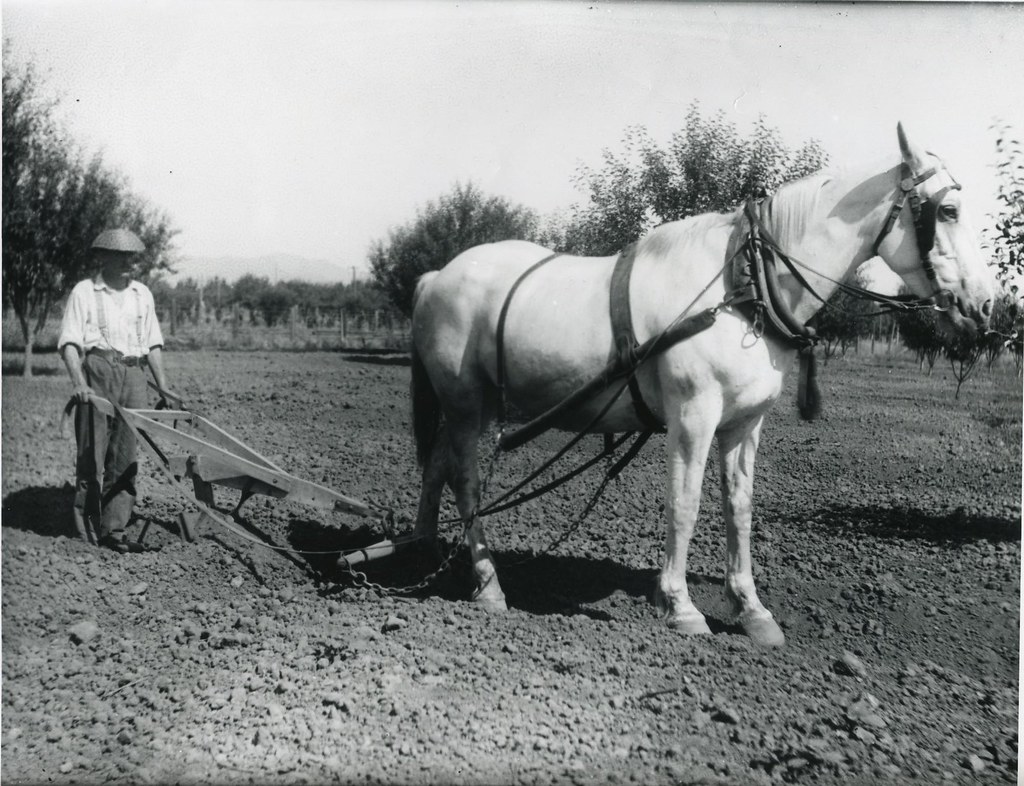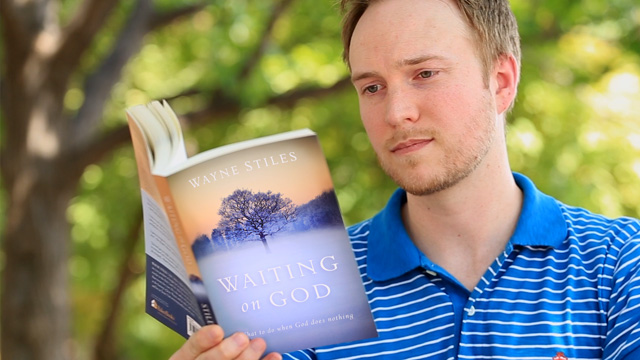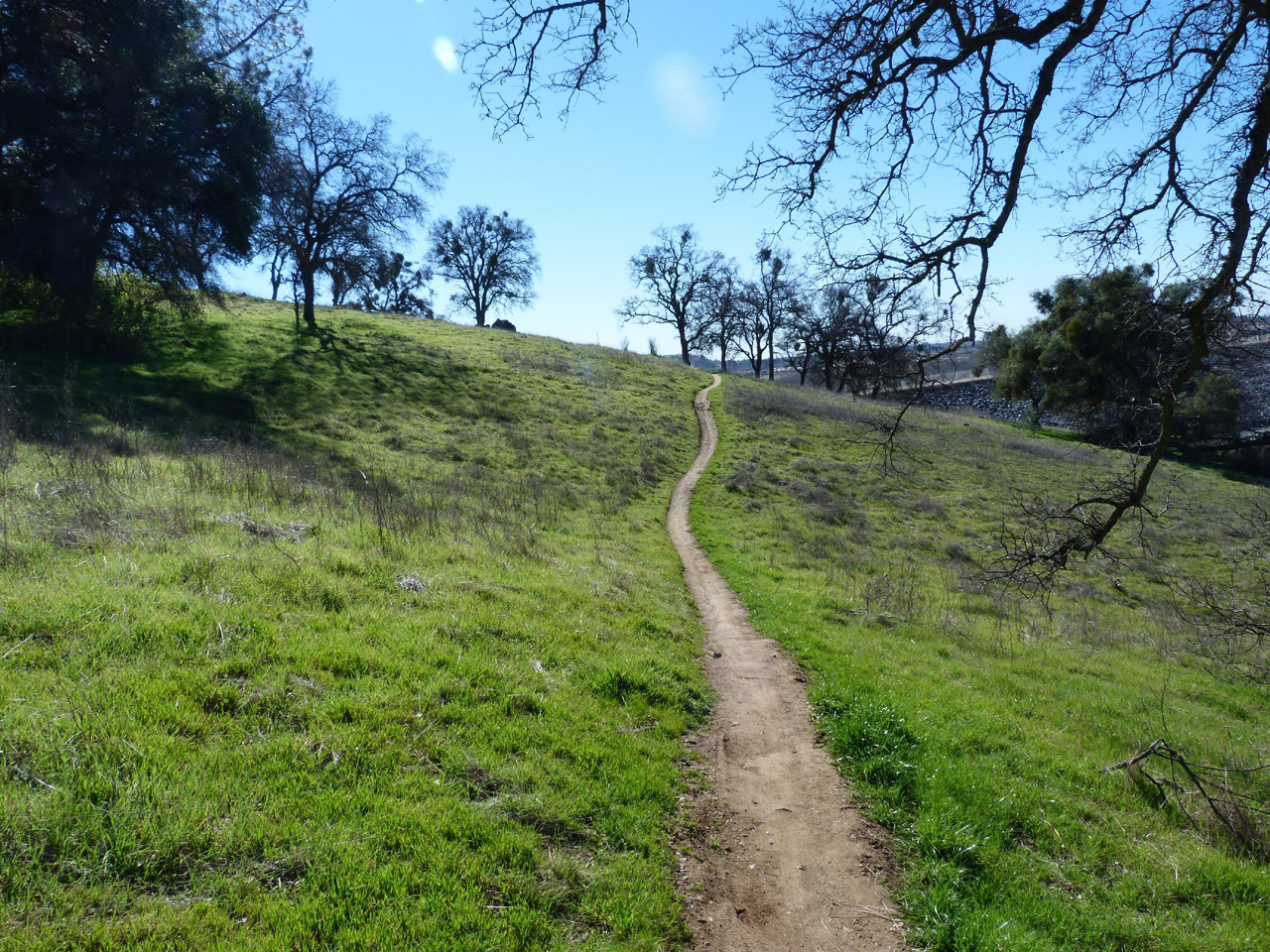The Lord is good to those who wait hopefully and expectantly for Him, to those who seek Him [inquire of and for Him and require Him by right of necessity and on the authority of God’s word]. (Lamentations 3:25, AMPC)
Review of Parts One through Four. The afflictions Jeremiah saw “under the rod of God’s wrath” were so terrible that he was weak and had lost all hope. Remembering all the past troubles made Jeremiah sad BUT recalling God’s mercy and loving kindness gives Jeremiah hope. Because of that hope, Jeremiah’s heart chooses God; THEREFORE, he has hope and he will wait. Life in our present world requires like precious hope. Such hope comes from dwelling on and believing Truth!
God wants us to diligently search for Him. He cares about our needs and He has made provision concerning our needs in His Word. Remember that God’s truths in Lamentations apply whether the affliction comes because of God’s loving discipline, our own sin, the sin of the people with whom we are connected, or the sin of our nation and our world.
Outline of Part Five:
- It is good to hope in and wait quietly for God.
- The appropriate attitude during affliction.
- “The yoke of divine disciplinary dealings.”
- A real-time example
- An attitude of humility and meekness
- Our compassionate, tenderly merciful Father
- God will not let affliction last forever
- Our God will be compassionate
- It is not His desire to afflict us
- God’s promises encourage His people
- Weeping and praying.
- Our world today
Verses 26-30. It is good to hope in and wait quietly for God. Keeping in mind what we learned in Parts One through Four (verses 1 through 25), take time now to read verses 26-30.
Did you see that verses 26 through 36 seem to be all one thought? Verses 1-25 assured us that God is merciful and kind and that His compassions toward us never fail. Verse 26 tells us that for that reason alone, while we are in a place of affliction we can hope in Him and wait quietly. “It is good that one should hope in and wait quietly for the salvation (safety and ease) of the Lord. Lamentations 3:26, AMPC”
Verse 27-36 explain that it is good to hope in and wait quietly for God because God is using the discipline of affliction for our benefit. These verses tell us to endure affliction humbly, knowing that God “does not willingly or from His heart afflict or grieve the children of men.”
The appropriate attitude during affliction. Verse 27 demonstrates what our attitude is to be during affliction.
“It is good for a man that he should bear the yoke [of divine disciplinary dealings] in his youth.”
While we wait and hope, we are to “bear the yoke of divine disciplinary dealings” and, furthermore, to bear it meekly. And the sooner we do that, the better. “It is good to submit at an early age the yoke of His discipline” (NLT).
God uses this metaphor of a yoke to demonstrate an appropriate attitude during affliction. We are to bear the yoke of affliction as a humble beast of burden. The humble ox submits to its master– who is the source of its life– with no questions, just blind trust and obedience. So are we to submit to our Master, the One who is the source of our life, knowing that—although life in this world is hard and filled with “troubles, trials, distress, and frustration” (John 16:33, AMPC)–our Master will always feed and care for us just as the master of the ox feeds and cares for it. As an ox must be trained to bear the yoke, so must we learn obedience through what we suffer, even as Christ did. Consider Hebrews 5:1-10, especially verses 8 and 9.
(8) Although He was a Son, He learned [active, special] obedience through what He suffered. (9) And, [His completed experience] making Him perfectly [equipped], He became the Author and Source of eternal salvation to all those who give heed and obey Him.
Where else but in the discipline of God’s stripping away the external do we learn to value the unseen but eternal and the “little” things in life? The school of affliction, regardless of the causes of it, teaches lessons learned nowhere else.
“The yoke of divine disciplinary dealings.” Verse 28 says clearly that “the yoke of Divine disciplinary dealings” is for our benefit.
“Let him sit alone uncomplaining and keeping silent [in hope], because [God] has laid [the yoke] upon him [for his benefit].
Divine disciplinary dealings are indeed a yoke. They require us to carry the load our Master wants us to carry and to go where our Master wants us to go. As an ox must be yoked in order for its power to serve its Master’s purpose, so must there be a means for the power of God in our lives to be used for the Master’s purpose.
<<<The yoke is the connection and the controlling force between the power of the ox and the load to be moved. Discipline is the connection, the means, by which God’s power through us moves us to a new place spiritually and achieves His desired work in us and our area of influence.>>
 The horse pulls the plow that tills the ground so its master can plant seed for hay that will feed the horse. Even so, as we submit to our Master’s yoke, He guides us so that our work turns out for our own benefit.
The horse pulls the plow that tills the ground so its master can plant seed for hay that will feed the horse. Even so, as we submit to our Master’s yoke, He guides us so that our work turns out for our own benefit.
A real-time example. Today, my recent yoke of affliction (breathing problems and fatigue) forced me to the couch, where I just rested and prayed and thought about this verse. In five minutes, God gave deeper understanding of this verse, understanding I would not have seen had I not been forced—by my yoke of the affliction of breathing difficulties and fatigue—to go where my Master wanted. God apparently wanted me to take more time to ponder this verse than I would have been had I been sitting at the computer. The yoke of His discipline is for our good.
An attitude of humility and meekness
(29) “Let him put his mouth in the dust [in abject recognition of his unworthiness]—there may yet be hope. (30) Let him give his cheek to the One Who smites him [even through His human agents]; let him be filled (full) with [men’s] reproach [in meekness].
Verse 29 pictures one falling down on one’s face. This recognition of our unworthiness is the attitude Jesus addresses in Luke 17:7-10. Jesus said that when we obey God, we should not expect thanks or praise for doing what God tells us to do. Rather, when we obey God, our heart should say “We are unworthy servants who have simply done our duty.” (Luke 17:10, NLT). That, I think, is one part of true humility.
Another part of humility is to bear insults meekly. To be slapped on the cheek is a humiliating insult that provokes the flesh toward retaliation. Yet, what did Jesus do? Jesus was no doubt aware that the Father was smiting Him through “His human agents”. Perhaps our Lord had this verse in mind in those cruel hours of His mock trial and torture before the cross. Jesus trusted His Heavenly Father during the horrors of His affliction because He knew His Father. He was One with His Father. And Jesus has given us the privilege of being one with Him if we love Him and obey Him. “On that day you will realize that I am in my Father, and you are in Me, and I am in you.” (John 14:20, NIV)
And Scripture certainly suggests, in my opinion, that during His afflictions Jesus had the truth of Lamentations 3: 31 in mind – for the Lord will not cast off forever! Jesus knew the ultimate end of His suffering. (Hebrews 12:2)
Our compassionate, tenderly merciful Father. Verses 31 through 36 explain why we can wait quietly with hope during afflictions – because God will not let it last forever (31), He will be compassionate (32) and it is not His desire to afflict us (33-36). Let’s look at those three statements.
God will not let affliction last forever—verse 31. To cast off means to throw something away. The NLT says “For no one is abandoned forever.” To cast off or abandon (a modern term for forsake) means “to give up with the intent of never again claiming a right or interest in.” It also means “to withdraw protection, support, or help from” (Webster’s 1828 online dictionary.) God promises in Hebrews 13:5, that He will never, no never, no never, in any degree—and most assuredly not!—forsake us.
Let your character or moral disposition be free from love of money [including greed, avarice, lust, and craving for earthly possessions] and be satisfied with your present [circumstances and with what you have]; for He [God] Himself has said, I will not in any way fail you nor give you up nor leave you without support. [I will] not, [I will] not, [I will] not in any degree leave you helpless nor forsake nor let [you] down (relax My hold on you)! [Assuredly not!] [Hebrews 13:5a, AMPC]
In the midst of affliction, it is easy to feel abandoned or rejected by God and others as well. But if we meditate upon God’s promises, God’s truth will shine the light of hope into the darkness of our affliction, no matter how dark. He guides our steps through the dark valleys (Psalm 23) as well as on the dangerous heights.
“The Lord GOD is my strength [my source of courage, my invincible army]; He has made my feet [steady and sure] like hinds’ feet. And makes me walk [forward with spiritual confidence] on my high places [of challenge and responsibility].” Habakkuk 3:19, AMPC
 Our God will be compassionate-verse 32. This verse shows clearly that sometimes God does “cause grief” but the word “yet” is an essential part of the truth in this verse. “Yet” can mean at a later time, in addition to what has been said” or “in spite of that” (www.merriam-webster.com)
Our God will be compassionate-verse 32. This verse shows clearly that sometimes God does “cause grief” but the word “yet” is an essential part of the truth in this verse. “Yet” can mean at a later time, in addition to what has been said” or “in spite of that” (www.merriam-webster.com)
“But though He causes grief, yet will He be moved to compassion according to the multitude of His loving-kindness and tender mercy.”
God is telling us that even though He sometimes does cause distress, He will also show great compassion on us and that compassion will be according to, or consistent with, the great number of His loving-kindnesses and tender mercies. God reminds us here that He shares our distress and wants to relieve us of it. And the ways He can relieve it are boundless. We may feel compassion for the homeless and give according to the finances we have, but a wealthy person, with the same degree of compassion, can give much more material help.
It is not His desire to afflict us–verse 33-36. And why will God be moved to such compassion? The NLT says “He does not enjoy hurting people or causing them sorrow.” On the contrary, God wants to do good for us; He is our good, good, good Father! In Matthew 7:8-11, Jesus urges us to ask for what we need and reassures us He will give us good things.
(7) “Ask and it will be given to you; seek and you will find; knock and the door will be opened to you. (8) For everyone who asks receives; the one who seeks finds; and to the one who knocks, the door will be opened. (9) Which of you, if your son asks for bread, will give him a stone? (10) Or if he asks for a fish will give him a snake? (11) If you then, though you are evil, know how to give good gifts to you children, how much more will your Father in heaven give good gifts to those who ask Him?” (NIV)
In Jeremiah 29, God speaks through Jeremiah to the Israelites who had been carried from Jerusalem into captivity in Babylon. God tells His people to settle down and live good, righteous lives right where they are because in 70 years, He will fulfill His promise to bring them back home. Then comes the well-known verse 11: ‘For I know the plans I have for you,’ declares the Lord, plans to prosper you and not harm you, plans to give you hope and a future”
God’s promises encourage His people. God continues with these promises that His rebellious, wicked people do not deserve any more than we do. God says:
“Then you will call on me and come and pray to me, and I will listen to you. You will seek me and find me when you seek me with all your heart. I will be found by you’ declares the Lord, ‘and will bring you back from captivity.” (12-14a)
The attitude of God’s heart is never to hurt us. God does not crush us completely and does not deprive us of justice or twist justice, as He is often accused of. God does not approve of these evils described in Verses 34-36 because He is altogether good. “The Lord is gracious and full of compassion, slow to anger and abounding in mercy and loving kindness” (Psalm 145:8, AMPC) If something or someone is full, that means there is no room for anything else. If a basket is full of wheat, there is no room for grass, hay or anything else. Our God is completely good and He overflows with mercy and tender, benevolent affection toward His children.
Weeping and praying. Halley’s Bible Handbook (p.409) says “the last chapter of Jeremiah should be read as an introduction to Lamentations.” Jeremiah is weeping over the city he tried to save but Jeremiah also “expresses his faith that Jerusalem will rise again.” Jeremiah wept over the great afflictions of his beloved city of Jerusalem and he delivered God’s directive to the people regarding how they were to live while under the affliction of captivity. In this case, the people were being disciplined by God for their repeated, willful sins. Jeremiah shared their affliction although he did not share their sin.
Pause and reflect. Are not we in America now suffering much affliction because the church in America for decades watered down the gospel, failed to preach Jesus and Him crucified, forsook holiness and embraced the wickedness of secular culture instead of working with God to redeem it?
Our world today. We, like Israel, are being led toward captivity by evil leaders who pass laws allowing the murder of babies and teaching our children that homosexuality and trying to change one’s gender are good. The entire world is reaping the consequences of sin.
When affliction comes because of our own sin, or when God is training us, let us examine ourselves, repent and/or refine our walk and obey God with greater purity of heart. When affliction comes because someone with whom we are connected sins or when God is using us to demonstrate His love to that person, we must hear from God and perhaps bear it silently or perhaps “speak the truth in love” but in any case we are live toward that person as Jesus would.
However, in affliction that comes because of the sin of our nation and the world, we are to be doing our part to fulfill the purpose of Jesus in coming to earth. In “Vessels of Fire and Glory” Mario Murillo says:
“Jesus is the one with a purpose and we have an assignment within that purpose.”
“What is Christ’s purpose on earth? First John 3:8 says, “He who sins is of the devil, for the devil has sinned from the beginning. For this purpose the Son of God was manifested, that He might destroy the works of the devil.”
Your assignment in the army of God is your individual expression and extension of Christ’s destruction of the works of the devil. You are a destroyer of the works of the devil. God will give you a way to do it that is all your own.
Until that gets through to you—until you admit and agree to those terms—God will remain silent about your assignment.” (p. 116-117)
I urge you to read this book. It will put fresh fire in your life.
And how might we, as individuals, work to “destroy the works of the devil?” Get and stay informed about what God is doing today and seek God for concrete action to take. You can start getting informed by listening to news from a Christian perspective. Resources are listed on the “What is God doing?” page of this website. God will certainly lead you o pray and may lead you to help in a political campaign of a righteous person, speak at your school board or run for a local office yourself.
May we, like Jeremiah, be moved to action and to compassionate prayer for our world, our nation and people we know who are undergoing affliction.
Oh, our loving Father in heaven! Thank You for Your tender mercies and compassion that prevent You from consuming us when we sin. Open the eyes of our heart so that we may purge our sin and walk in holiness before you. Oh, Lord! Have mercy on our nation, our world and those who persist in doing evil. Shine the light of Your truth into every dark situation and turn hearts toward You and Your holiness.
Help us, Lord, have a humble and meek attitude toward whatever troubles we now face. We know You are working all things together for good. Help us wait quietly and with hope for Your safety and ease but also show us where to do our part to “destroy the works of the devil.”
We know and are deeply confident that You will yet be “moved to compassion according to the multitude of Your loving-kindness and tender mercy.” (Lamentations 3) Amen and so be it!
Part Six. In Part Six, we will examine what Jeremiah says about the sovereignty of our loving Father and why that gives comfort to those who follow Him whole-heartedly.

 21-23: . . . recalling God’s mercy and loving kindnesses gives Jeremiah hope.
21-23: . . . recalling God’s mercy and loving kindnesses gives Jeremiah hope.  In Part Three, we will explore the blessings of waiting and hoping how God says to wait and hope. May you be richly blessed as you wait for Him, with hope and expectation!
In Part Three, we will explore the blessings of waiting and hoping how God says to wait and hope. May you be richly blessed as you wait for Him, with hope and expectation! To me, this says that if set my heart to live for the Kingdom as Jesus did—if I get my life in order or “make level paths for my feet”—then as I run my appointed race, my “lame and halting [limbs] may not be put out of joint, but rather may be cured.” (verse 13b, AMPC).
To me, this says that if set my heart to live for the Kingdom as Jesus did—if I get my life in order or “make level paths for my feet”—then as I run my appointed race, my “lame and halting [limbs] may not be put out of joint, but rather may be cured.” (verse 13b, AMPC).